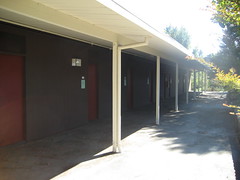Hiring, again
Tuesday, October 9th, 2007Work around here is expanding and so I’m hiring again, this time with my colleague Peter Miller. See ad below. Please forward to people who may be interested. Thanks!
Job Opportunity
Research Associate, Youth Digital Media Use Survey Project
Northwestern University
The Youth Digital Media Use Survey Project at Northwestern University is looking for a Research Associate for a project funded by the MacArthur Foundation. The Research Associate will work closely with Professors Eszter Hargittai and Peter Miller to collect and archive information on surveys of youth digital media use. In addition, the Associate will organize and document several in-person and on-line meetings of youth digital media researchers. The end product of the project, which the Research Associate will help to draft, is a report making recommendations to the MacArthur Foundation on survey design options for the study of youth digital media use.
*Responsibilities: Collect and archive published and “grey” literature on youth digital media use; collect and archive information on survey projects that have been or could be employed for the study of youth digital media use; work with the principal investigators, organize and document several meetings of researchers in this field; help to synthesize the information from these various sources for a project report. Depending on skills and interests, serve as a co-author on scholarly articles resulting from the project.
*Qualifications: Master’s degree in social science (e.g., communication, sociology, political science, economics, psychology, human development, learning sciences, library and information science); 1-3 years of work experience; strong organizational skills; strong written and verbal communication skills; excellent interpersonal skills; strong problem solving and analytical skills; ability to work in a professional manner as both a self-starter and a team member; intermediate-advanced skills in Microsoft Office (particularly Word and Excel); and intermediate-advanced skills in using Web interfaces.
*Desired Qualifications: Terminal degree (Ph.D., Ed.D., J.D.) in quantitative social science with experience in survey research; project management experience; archival experience; advanced skills in Microsoft Office (particularly Word and Excel); experience with analysis of quantitative data, especially in the use of Stata.
*Salary: $3,125 per month for 30 hours/week.
*The position starts immediately and will last eight months.
*Northwestern University is an EEO/AA employer.
*Please send cover letter, resume and reference contact information to
Jason Gallo, Project Coordinator (Web Use Project) at job-ydmus@webuse.org


